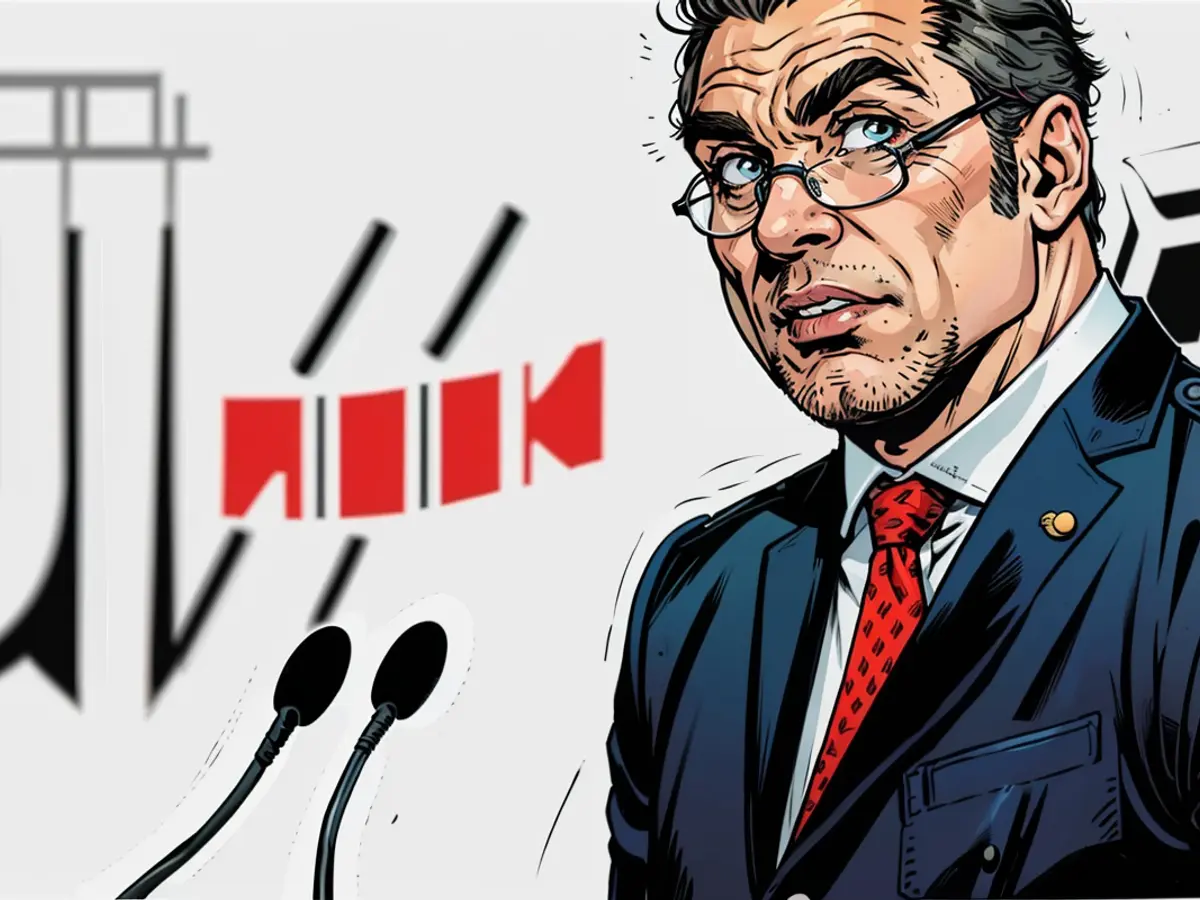Financial Sector - UV Nord worries over increase in anti-European political groups.
The northern economy is worried about the increase in more radical or anti-European parties in the upcoming European elections and has urged the federal government to rethink its approach. "This is a wake-up call for the traffic light coalition in Berlin, which has been misguiding northern businesses so far," said Philipp Murmann, president of the UVNorth business association on Monday. People are concerned about the economy, their jobs, and internal security. However, they are offered solutions for cannabis use and gender identification.
The president of the North Metal Employers' Association, Folkmar Ukena, looking at the high voter turnout in Germany of almost 65%, said: "The fact that extremist parties were able to rally many voters makes me concerned about the upcoming elections in Saxony, Thuringia, and Brandenburg, as well as the federal election in 2025." The German European election result is a "stinging slap in the face" for the SPD and Greens, and Ukena called on all democratic parties to take action.
"German industry needs less regulation and bureaucracy, higher competitiveness instead of higher energy costs, and more foreign trade instead of protectionism," said Ukena. UVNord CEO Murmann, on the other hand, highlighted: "Our hope lies in the fact that the majority democratic factions will unite and map out a clear and pragmatic course for a strong Europe."
The chairman of the Hamburg Industry Association, Matthias Boxberger, sounded a warning: "The European ideal must not be swamped by populism!" Jobs, wealth generation, and prosperity hinge on open borders within the EU. "The common currency, uniform standards, and a strong overall European voice in negotiations can only make possible an economically robust Europe that doesn't get bogged down in excessive regulations." Only if Europe can link the sustainable transformation of industry with global competitiveness will other regions adopt this model.
The president of the Central Association of German Seaport Operators (ZDS) demanded that the new European Parliament and the future EU Commission pay more attention to the maritime sector. "To meet the challenges of our time, we need strong ports," said ZDS President Angela Titzrath. Economic power, energy transition, and defense necessitate efficient seaports and transport connections. "For a strong European Union, maritime logistics must be a priority."
In light of numerous crises, the EU must focus on its strengths: joint action, a free internal market, an open and confident trade policy, and fair competition. "All this should also be incorporated into a comprehensive European port strategy as well as a common maritime industry strategy," demanded the managing director of the Hamburg Port and Logistics AG (HHLA), Titzrath. In addition, the subsidy regulations for ports and shipping need to be modernized, the guidelines for state subsidies should be reviewed, and the emissions trading for shipping should be improved. "Prompt action by the EU is essential, as shipping companies have already been setting up new loading centers outside the EU for some time," explained Titzrath.
In the preliminary official results, the Union won the European election in Germany on Sunday with a decisive lead - surpassing the AfD, which became the second strongest party. The CDU and CSU together achieved 30.0%. The AfD significantly improved to 15.9%. The ruling parties of the traffic light coalition faced losses: the SPD slipped to 13.9%, experienced their worst nationwide election result, the Greens dropped drastically to 11.9%, and the FDP endured minor loss with 5.2%. The newly formed left-wing alliance Sahra Wagenknecht (BSW) leaped from nowhere to 6.2%, while the Left managed 2.7%.
Read also:
The increase in anti-European parties is also concerning in regions like Saxony and Thuringia, potentially impacting future federal elections. Murmann expressed concern about the misguided policies towards northern businesses by the traffic light coalition in Berlin. The European election result is a setback for the SPD and Greens, prompting calls for action from all democratic parties. Ukena emphasized the need for less regulation, higher competitiveness, and more foreign trade instead of protectionism. Murmann's hope lies in the unity of democratic factions for a strong Europe. Boxberger warned against the swamping of the European ideal by populism. Titzrath demanded a stronger focus on the maritime sector and ports in the EU strategy. The CDU and CSU led the European election in Germany, while the SPD, Greens, and FDP faced losses. The newly formed left-wing alliance experienced growth, while the AfD significantly improved their position.
In associations like the Central Association of German Seaport Operators, leaders call for the EU to address challenges with joint action, a free internal market, and an open trade policy. They highlight the importance of efficient seaports and transport connections for a strong European Union. The managing director of Hamburg Port and Logistics AG demands modernization of subsidy regulations for ports and shipping, improved emissions trading, and a common maritime industry strategy. The preliminary results show that the Union won the European election in Germany with a decisive lead, surpassing the AfD. The ruling parties of the traffic light coalition faced losses, while new political alliances like the Sahra Wagenknecht (BSW) experienced growth.
The situation in Schleswig-Holstein mirrors the EU's predicament, with many Europhobic sentiments and a need for a more pro-Europe stance. Germany, as a whole, is facing critical elections in various regions and in 2025, as the influence of extremist parties on the political landscape raises concerns. The EU's future relies on a cohesive and strong European voice in negotiations, efficient seaports, and a commitment to open borders for wealth generation and prosperity. While associations like UV Nord and ZDS urge the Federal Government to rethink its approach, the future European election result remains uncertain.








